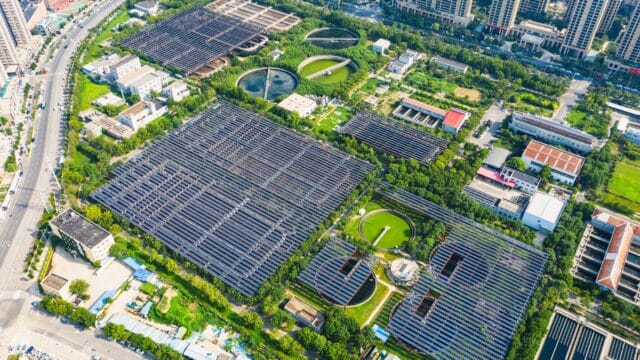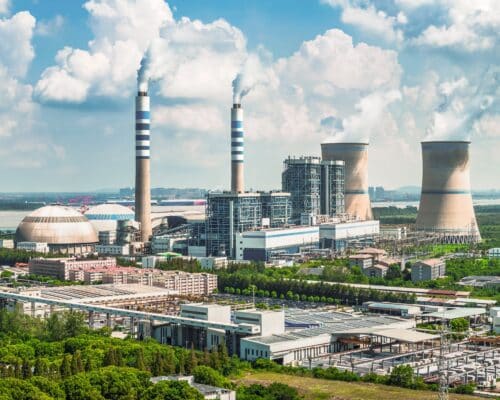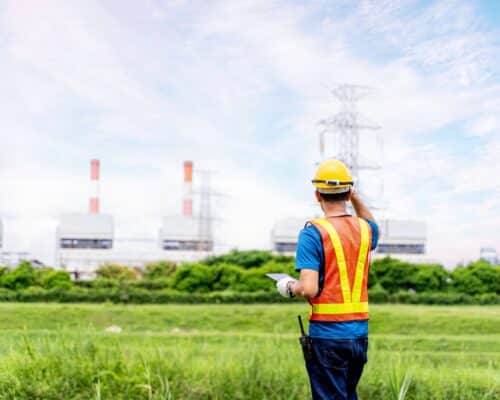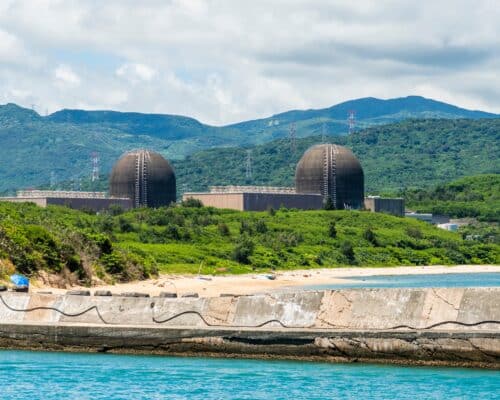Blog

Clean Energy Drove More Than a Third of China’s GDP Growth in 2025 [Op-Ed]
Clean-energy sectors powered more than a third of China’s GDP growth in 2025, driving over 90% of investment gains and reaching a record 15.4 trillion yuan. If clean energy were a country, it would rank as the 8th-largest economy, growing at about 18% in 2025 while the broader economy expanded 5%. The outlook remains uncertain, but local governments and state-owned enterprises could keep the clean-energy boom going even as policy targets evolve.
Philippines Weighs High-Stakes Carbon Pricing and Common Market Pitfalls [Op-Ed]
The Philippines is pursuing a domestic carbon pricing path with an Emissions Trading System (ETS) through the Low Carbon Economy Investment Bill, aiming to mobilise private capital for climate resilience. However, a critical policy analysis warns that without strong social and environmental guardrails—clear absolute caps, just transition safeguards, and robust governance—the proposed system could legitimise pollution and fall short on real emissions reductions. The report calls for complementary legislation and safeguards to ensure that carbon finance benefits people, ecosystems, and local communities rather than serving as a loophole for compliance without meaningful decarbonisation.

Coal Power Drops in China and India for First Time in 52 Years After Clean-energy Records [Op-Ed]
Coal power output fell in both China and India in 2025 for the first time in 52 years, despite rising electricity demand. The decline coincides with record clean-energy additions—solar, wind, and nuclear—that more than offset demand growth, suggesting a potential peaking of coal use in both economies if clean-energy expansion continues. This shift has important implications for global CO2 trajectories, given the two countries’ dominant share of recent emissions growth.

China’s Policymakers Face Big Choices After No Emissions Growth for 18 Months [Op-Ed]
China’s emissions have stabilised or fallen since mid-2023, despite continued growth in fossil fuel demand, driven by a clean-energy surge in wind, solar, and rail-based transport. With grid reforms, storage, and policy shifts, Beijing now faces a pivotal choice: sustain the clean-energy boom and curb coal, or slow the pace of decarbonisation as fossil fuels rebound in the economy. The coming five-year plan will determine whether China peaks emissions early and accelerates toward its 2030 and 2060 climate goals.

Special Focus on AI and Climate Change at COP30
AI's growing energy use can do enormous environmental damage and the technology can magnify climate disinformation. However, it can also improve early warning systems, improve climate change adaptation and reduce CO2 emissions when powered by renewables. Governments and corporations have to choose which path to take.

How Thailand Can Transition from Gas Dependency Risks to Clean Energy Gains [Op-Ed]
Thailand’s growing dependence on imported Liquefied Natural Gas (LNG) bears the risk of becoming a costly vulnerability. Yet by redefining the role of gas and accelerating the shift to renewables, as well as incorporating flexibility and grid modernisation into its energy planning, Thailand can turn risk into resilience and build a cleaner, more competitive economy.
Time to Ride, Indonesia Electric Motorcycle Diaries [Op-Ed]
Indonesia has the ingredients to become a global leader in electric motorcycles, with a huge domestic market, a culture of ingenuity, and a growing local ecosystem. Yet fragmentation, infrastructure gaps, and a subsidy rollback show that a coordinated, long-term approach—combining targeted incentives, charging access, and strong domestic brands—is essential to unlock sustainable growth in this sector.

Banking Indonesia Away From Coal [Op-Ed]
Indonesia’s financial sector faces a pivotal test as coal demand wanes from China and India, forcing banks to reassess risk and accelerate a credible transition toward renewables. Without binding governance and disciplined ESG integration, lenders risk stranded assets and eroding resilience in a decarbonising global economy. A transition that shifts capital toward clean energy and storage is essential to safeguard Indonesia’s climate goals and financial stability.

After Nuclear, Renewables Can Power an Energy-secure Taiwan
Taiwan faces a pivotal energy crossroads: accelerating LNG imports may shore up near-term supply, but risk security vulnerabilities and conflict with long-term climate goals. With renewables and storage expanding, a clear, long-term plan is essential to reduce dependency on gas, cut carbon, and strengthen energy resilience against geopolitical risks. A diversified, renewables-forward blueprint could safeguard both energy security and climate commitments.

Where There is a Will, There is Collaboration [Op-Ed]
As climate risk grows, a clear, collaborative climate agenda from major economies is essential. China’s rapid scale-up of clean energy, India’s accelerating non-fossil power share, and Brazil’s leadership on forests, alongside EU ambitions, point to a multipolar path forward. The question is whether financing and resilient, demand-driven cooperation can unlock the trillions needed to protect vulnerable populations and sustain global supply chains in a changing geopolitical landscape.

Coastal Communities Bear the Brunt of Thailand’s LNG Boom [Op-Ed]
Thailand's push to achieve carbon neutrality by 2050 relies heavily on expanding LNG infrastructure, but this fossil fuel remains a significant environmental and health threat. Communities in Rayong face pollution, water contamination, and health risks, raising urgent questions about whether Southeast Asia’s energy transition is sustainable. If policymakers act now, the push for renewables offers a safer, cleaner alternative.
Asia’s Proposed Coal Projects May Reverse Recent Declines, Significantly Increasing Methane Emissions [Op-Ed]
Global coal mine capacity saw its lowest increase since 2015, but with over 2,200 Mtpa still in development—primarily in China and India—the risk of future expansion remains high. Projected methane emissions from these new mines could surpass Japan’s annual greenhouse gas output, exacerbating climate impacts. The trajectory of coal development in Asia highlights ongoing challenges for climate mitigation efforts.

Can Malaysia’s AI Data Centres Go Green? [Op-Ed]
Malaysia’s data centres, a significant contributor to global energy consumption, have the potential to go green by adopting renewable energy sources and sustainable practices. Transitioning to eco-friendly operations reduces carbon emissions and sets a powerful example for the tech industry worldwide. Can Malaysia’s AI-powered data centres lead the way in sustainable digital transformation?

The Energy Transition and Biodiversity: East Kalimantan Case Study [Op-Ed]
Indonesia’s ongoing coal expansion threatens vital biodiversity hotspots, risking species extinction and disrupting ecosystems crucial for human survival. Urgent action is needed to protect key biodiversity areas, accelerate renewable energy development and shift away from fossil fuels to safeguard nature and the country's long-term energy security.
Most Popular
Categories
-
10
-
34
-
126
-
4
-
17
-
46
-
52
-
11
-
10
-
15
-
24
-
6
-
5
-
1
-
6
-
283
-
200
-
17
-
24
-
1
-
1
-
23
-
41
-
44
-
88
-
18
-
86
-
41
-
17
-
11
-
43
-
54
-
86
-
299
-
22
-
44
-
36
-
11
-
42
-
36

